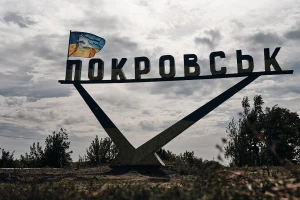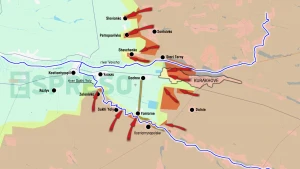
Hungary's potential role in unlocking European aid to Ukraine
The Hungarian Foreign Ministry's visit to Uzhhorod creates an opportunity for Prime Minister Viktor Orbán to reconsider and support the release of EU aid to Ukraine
The visit by Hungary's Minister of Foreign Affairs, Péter Szijjártó, to Uzhgorod holds significance for Ukraine's potential receipt of European Union assistance. Hungary stands as the sole EU member state willing to impede the allocation of this aid, as witnessed in the recent EU leaders' meeting.
Prime Minister Viktor Orbán openly expressed the possibility of maintaining this stance during the upcoming European Union special summit on February 1. Hence, the visit of Hungary's Minister of Foreign Affairs to Ukraine provides Orbán with a chance, should he choose to take it, to clarify any shift in his position and express support for aid allocation. During discussions with Ukrainian counterparts, the Hungarian Minister of Foreign Affairs addressed key issues in bilateral relations.
Hungary and Ukraine have made progress in preparing for a meeting between Volodymyr Zelenskyy and Viktor Orbán. Notably, such an official meeting has not occurred since Zelenskyy assumed the presidency.
If Orbán aims to maintain his previous firm stance, he might attribute it to Péter Szijjártó's lack of agreement with the head of the Ukrainian President's Office, Andriy Yermak, and Ukraine's Foreign Affairs Minister, Dmytro Kuleba.
The presence of the head of the President's Office in Uzhhorod raised eyebrows, considering Yermak was purportedly Péter Szijjártó's confidant at the negotiating table, with Kuleba standing next to the head of the Presidential Office. However, this shouldn't be surprising, not just in terms of Ukraine's power structure but also Hungary's.
The Hungarian regime is essentially a corporate proxy regime, where Péter Szijjártó plays the role of Viktor Orbán's proxy alongside his head of administration, Balázs Orbán.
Hungary's President, Katalin Novák, who recently visited Kyiv, is viewed more as a symbolic figure rather than a key decision-maker in Hungarian politics.
If Prime Minister Orbán genuinely believes that Ukraine seeks to address substantial political matters with him, involving not only political but personal interests, and desires a meeting between the Ukrainian President and the Hungarian Prime Minister, then the appropriate counterpart for Orbán's trusted interlocutor should be a representative of the Ukrainian President. Orbán is well aware that Ukraine, following the 2019 elections, operates with a power structure where individuals act as proxies. In this context, Andriy Yermak serves functions similar to those of Péter Szijjártó in Orbán's circle. On the other hand, Ukraine's Foreign Minister, Dmytro Kuleba, holds more representative roles and lacks the same influence over the head of state and the decisions made by President Zelenskyy personally. If Kuleba had traveled to Uzhgorod without Yermak, it might be perceived in Budapest as a reluctance on the part of the Ukrainian authorities, structurally similar to the Hungarian government, to engage in serious discussions about matters of genuine interest to the Ukrainian president and the country.
The allocation of aid from the European Union is a pressing matter for Ukraine's ongoing struggle against Russian aggression and its economic survival amid the challenges resulting from Russia's aggression over the past two years.
It's uncertain whether an agreement on current issues aligning with Budapest's interests can be reached. Péter Szijjártó emphasized his visit to Uzhhorod to ensure equal rights for the Hungarian national minority. While the Hungarian minority already enjoys equal rights, Budapest claims rights were supposedly taken away after 2015.
In legislative terms, Viktor Orbán and Péter Szijjártó are pushing for a return to the Kivalov-Kolesnichenko law, mainly regarding regional conditions. This demand has been explicitly stated multiple times and is not speculative. They consistently refer to this law when discussing issues for Transcarpathian Hungarians.
It's clear that Kyiv will not revert to this law due to the potential for political and social unrest, which the Ukrainian authorities find undesirable. Moreover, there are no constitutional grounds for reinstating such legislation.
A commission will be established to address issues from the Budapest side, likely involving local steps. Notably, Szijjártó highlighted the crucial role of the new head of the Transcarpathian regional administration.
These actions may not fully resolve Hungary's concerns but could enable Viktor Orbán to downplay the severity of the issues if he chooses.
In reality, we're engaged in a political charade for Viktor Orbán's benefit. Only he can determine the most advantageous course of action: improve ties with Ukraine to showcase cooperation with the European Union, especially after a setback from the Turkish President over Sweden's NATO admission. Alternatively, Orbán might maintain his tough stance, aligning not with EU and NATO counterparts, but with leaders like Putin and Xi Jinping, impacting his economic interests and power preservation.
We'll know the Hungarian Prime Minister's decision once Péter Szijjártó returns to Budapest and the European Union summit occurs. The summit will determine whether Ukraine will receive assistance from our European neighbors.
About the author. Vitaly Portnikov, journalist, the Shevchenko National Prize laureate
The editors do not always share the opinions expressed by the blog authors.
- News













































